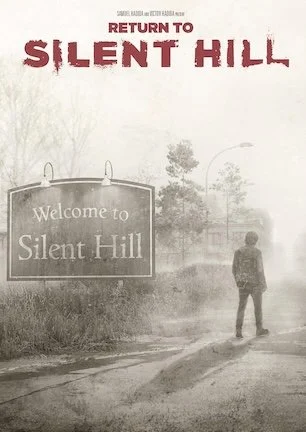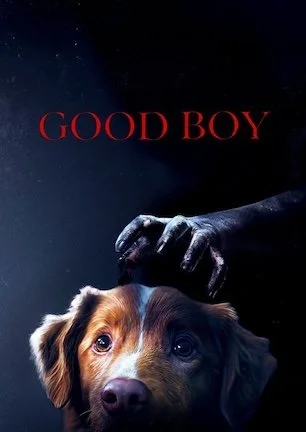Studio: Blumhouse/Universal Pictures
Director: Leigh Whannell
Writer: Leigh Whannell, Corbett Tuck
Producer: Jason Blum
Stars: Christopher Abbott, Julia Garner, Matilda Firth, Benedict Hardie, Sam Jaeger
Review Score:
Summary:
A family fights to defend themselves against a deadly creature while the husband undergoes a disturbing transformation.
Review:
The first time that filmmaker Leigh Whannell reimagined a Universal Monster, he used the classic concept of “The Invisible Man” (review here) to tell a terrifying tale rich with contemporary commentary on gaslit victims of dangerously obsessive partners. The 2020 film was a commercial and critical success, with many praising its multilayered heroine and poignant thematic parallels. For his second turn in that territory, Whannell attempts to similarly transform “Wolf Man” into a frightening metaphor for feeling isolated from loved ones who develop alienating personas, but this movie merits decidedly different results.
Scaled-down design felt fitting for “The Invisible Man,” yet there’s something off about how, even though this is one of their high-profile features with a big studio, Blumhouse still takes an economical route with “Wolf Man” like it’s one of their straight-to-streaming titles. There are no castles, gypsy caravans, or European villages here. The film features three plain main characters stuck in a single location, which is ordinarily the formula for a DTV indie with three fewer zeroes in its budget, and which starts off “Wolf Man” on the wrong paw by feeling comparatively cheap for a major motion picture.
The setup couldn’t be simpler. Having inherited his childhood home from his estranged father who was declared dead after going missing in the woods (what could have possibly happened to him?), Blake sees an opportunity to steady his rocky marriage. With his wife Charlotte and their daughter Ginger in tow, Blake trades San Francisco for the rural tranquility of remote Oregon woods as they make their way to the family’s new farmhouse.
Typical teasing and giggling present everyone as lovingly playful, despite the growing distance Charlotte fears is separating her further from both Blake and Ginger. In a way she never could have expected, they’re about to get closer than ever before. After an unseen creature slashes Blake’s arm, the trio barricades themselves against the beast. But Blake then undergoes a mutation that causes Charlotte to worry another monster might be standing right beside her and Ginger.
“Wolf Man’s” core conflict should be this dilemma Charlotte deals with in facing the threat outside as well the threat inside, and weighing which one presents the greatest danger to her and her daughter. It’s hard for that to happen though, because Charlotte doesn’t have any solo scenes with just her and Ginger until Blake begins transforming. Early on, Charlotte calls out the plot point that she laments how her daughter has more of a loving relationship with Blake than with her. But even during their ordeal, the movie doesn’t do anything to build their bond, which should be crucial to tying an emotional throughline, beyond having Charlotte shuffle the girl from one location to the next like she’s an inanimate sack of potatoes.
Charlotte is gravely underdeveloped to begin with. Only two scenes put any real skin on her personality, and both of those occur in the context of interacting with her husband. One comes when she responds to Blake’s concerns about their relationship. The other comes while he’s morphing, when Charlotte desperately pleads about Blake being her “best friend,” a curious sentiment considering the film never shows an example of the brighter side of their marriage except when they’re tickling Ginger together.
When we could be getting to know Charlotte better, “Wolf Man” instead allocates time to giving us more of the movie from Blake’s perspective, sometimes literally. In certain stages of Blake’s progression, we hear the distorted sounds and see the glowing blue eyes of his wife and daughter as he becomes more of an animal. While it’s fleetingly intriguing to experience what Blake is going through, it might be more visually exciting to witness more of the startling body horror mutation. More importantly, it’s a narrative mistake to put us in Blake’s shoes when Charlotte is undergoing more heart-racing horror on a level that isn’t physical.
Blake’s actual metamorphosis holds no inherent suspense. At every turn, the audience knows what will happen next, including during a prologue the film curiously spends 11 minutes on to show Blake and his father’s first encounter with a creature, yet “Wolf Man” treats his transformation like it’s a mystery. For someone so seasoned in genre entertainment, it’s unusual that the creeps Whannell tries constructing are almost entirely devoid of tension.
In one sequence, Charlotte has to start an old car while a threat that is neither seen nor heard presumably lurks nearby. The monster eventually attacks, except it does so after Charlotte finally turns over the engine. There’s never any “Is she going to make it?” moment or “C’mon, c’mon!” panic since those possibilities pass by before the scare finally triggers.
Granted, Blake isn’t the only lycanthrope in the film. An argument might be made that the title doesn’t necessarily refer exclusively to him. Nevertheless, it’s another misfire for the leading man to not become a full wolf until only 15 minutes left until end credits. It’s bad enough to have to wait over an hour to finally see the main attraction. It’s worse that the wait is spent on characters kept at arm’s length from potential audience investment and on predictable beats that transform “Wolf Man” into a disappointingly bland movie.
Review Score: 40






While the 110-minute runtime could use a trim to maintain more energy, “Redux Redux” is an easy recommend for anyone who enjoys low-key sci-fi.